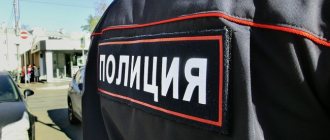Tweet
On January 1, 2015, amendments to Art. 281 of the Code of Criminal Procedure of the Russian Federation, which introduced Part 6 into this article. According to this part, “disclosure of testimony of a minor victim or witness previously given during a preliminary investigation or trial, as well as demonstration of photographic negatives and photographs, transparencies taken during interrogations, reproduction audio and video recordings, filming of interrogations are carried out in the absence of a minor victim or witness without interrogation.
At the request of the parties or on its own initiative, the court makes a reasoned decision on the need to interrogate the minor victim or witness again.”
A literal interpretation of these norms leads to the conclusion that in a court hearing in a case where a minor is a victim or witness, the primary priority is the announcement of his testimony with the playback of their video recording. Only if there are grounds established by the court for questioning this victim directly at the court hearing, the court makes a decision to summon him.
Availability of video recording of the interrogation. The first condition is mandatory, formal - compliance with Part 5 of Art. 191 of the Code of Criminal Procedure of the Russian Federation during the interrogation of a minor victim by an investigator.
With the introduction to Art. 191 of the Code of Criminal Procedure of the Russian Federation, part 5, it has become mandatory to use video recordings or filming during investigative actions with the participation of a minor victim, except in cases where the victim or his legal representative objects to this.
Both regulations came into force at the same time. Obviously, therefore, one of them is a condition for the application of the other. Hence, only if a video recording of this investigative action is attached to the protocol of interrogation of a minor victim, the court has the right to apply the norm of Part 6 of Art. 281 of the Code of Criminal Procedure of the Russian Federation and examine these materials without interrogating the victim in a court hearing.
Deviation from this rule could call into question the assessment of such testimony as benign evidence. The significance of video recording of the victim's testimony will be discussed in more detail below.
That is why it seems justified when judges, when resolving the issue of scheduling a court hearing, pay attention to whether the specified rules were explained to the legal representative of the victim, and, if there are grounds, depending on the age, to the victim. Including the consequences of making a video recording of the interrogation, which consists in the absence of the need to then testify in court, with the necessary reservation about the right of the court to call the victim.
Only if a video recording of this investigative action is attached to the protocol of interrogation of the minor victim, the court has the right to apply Part 6 of Art. 281 of the Code of Criminal Procedure and examine these materials without interrogating the victim in court
The norm applies, as can be seen from its content, to minors. This is a person who has not reached the age of 18 years (Part 1 of Article 54 of the RF IC).
The CoE Convention (Article 35, paragraph 3) specifies that when the age of the victim is not determined at the time of the interview, and there is reason to believe that the victim is a child, until the age is established, the measures provided for the child are applied. Thus, the priority of protecting the rights of a minor victim has been implemented, implying the interpretation of doubts regarding his age in his favor (of course, only for the purposes of the procedure).
According to the rules on the operation of the procedural law in time (Article 4 of the Code of Criminal Procedure of the Russian Federation), the corresponding norm is subject to application at the time of a specific interrogation, other investigative action, at the time of resolution of the petition to summon the victim for questioning. For example, if a crime was committed against a minor, but by the time the case was considered by the court, the victim had reached the age of 18 years, the grounds for the court to apply Part 6 of Art. 281 of the Code of Criminal Procedure of the Russian Federation no.
Domestic legislation takes a similar view, making respect for the honor and dignity of the individual a principle of criminal proceedings (Article 9 of the Code of Criminal Procedure of the Russian Federation). The development and specification of this principle in relation to the victim is given in the current resolution of the Plenum of the Supreme Court of the Russian Federation dated June 29, 2010 No. 17 “On the practice of application by courts of norms regulating the participation of the victim in criminal proceedings,” which emphasizes that the victim has his own interests in criminal proceedings, for the protection of which he is endowed with the rights of a party (clause 2).
The aforementioned Convention of the Council of Europe (clause 1 of article 34, subsection “c”, clause 1 of article 35, clause 1 of article 36) draws attention to the fact that the implementation of recommendations regarding the participation of a child in criminal proceedings, and in particular in interviewing a child, requires the presence of specialized personnel who have received special training.
Shifting the main attention of the court and the parties to the study of the child’s testimony obtained during the investigation, and the opportunity to visually verify how the interrogation took place, involves increasing the special training of investigators working with minor victims, and giving them the skills to apply the law necessary when investigating such cases.
Noteworthy are cases where minors (for example, aged 9-10 years) are explained the full set of rights provided for in Art. 42 of the Code of Criminal Procedure of the Russian Federation, instead of explaining them to the legal representative. Or when the interrogation of a minor is conducted in legal, official language and in the same way his testimony is recorded, which may give rise to doubts about the reliability of the testimony stated in the protocol.
If the interrogation of a minor is conducted in legal, official language and his testimony is recorded in the same way, this may give rise to doubts about the reliability of the testimony stated in the protocol
Differences in the norms of the Code of Criminal Procedure of the Russian Federation governing the procedure for interrogating adults and minors have existed for a long time. However, it appears that the practice of working with child victims of crime needs to be improved. The human factor plays an extremely important role in the correct application of the law. Training investigators and court workers, developing recommendations and methods for the correct application of procedural norms when involving minors in criminal proceedings is the next and necessary step towards ensuring effective protection of the rights of the victim.
One of the main practical issues is the relationship between Part 6 of Art. 281 of the Code of Criminal Procedure of the Russian Federation with the rules existing in the criminal procedure law for interrogation and reading out the testimony of the victim, provided for in Art. 240, 277, 278, 280 of the Code of Criminal Procedure of the Russian Federation.
In relation to Art. 280 of the Code of Criminal Procedure of the Russian Federation, which provides for the specifics of interrogation of a minor victim, does not see any contradictions in the new norm. According to the general rule, now provided for in Part 6 of Art. 281 of the Code of Criminal Procedure of the Russian Federation, a minor victim is not interrogated in court. However, if the court, on its own initiative or at the request of a party, nevertheless comes to the conclusion that it is necessary to interrogate such a victim at a court hearing, he will be interrogated according to the rules of Art. 280 Code of Criminal Procedure of the Russian Federation. Thus, if Part 6 of Art. 281 of the Code of Criminal Procedure of the Russian Federation determines the possibility of interrogating a minor victim, then Art. 280 of the Code of Criminal Procedure of the Russian Federation provides for the procedure for this interrogation, provided that a decision is made to conduct it.
In relation to Art. Art. 277 and 278 of the Code of Criminal Procedure of the Russian Federation, establishing general rules for interrogating victims and reading out their testimony, part 6 of Art. 281 of the Code of Criminal Procedure of the Russian Federation is a special norm to be applied specifically in cases where the victim is a minor. Consequently, when there is competition between norms, it is the innovation we are considering that should be applied.
The provision of the law included by the legislator in Art. 281 of the Code of Criminal Procedure of the Russian Federation, does not contradict the principles of direct examination of evidence enshrined in Art. 240 of the Code of Criminal Procedure of the Russian Federation, since Part 2 of Art. 240 of the Code of Criminal Procedure of the Russian Federation directly establishes the disclosure of evidence given during the preliminary investigation in cases provided for in Art. 281 Code of Criminal Procedure of the Russian Federation. Consequently, there is no formal contradiction here, and we should consider the essential issues in more detail.
One of the most effective means of resolving the issue of trauma to a child’s psyche is to record his initial interview with the opportunity to present this recording as evidence in further proceedings.
Directive No. 2012/29EC of the European Parliament and of the Council on establishing minimum standards for the rights, support and protection of victims of crime and replacing the Council Framework Decision 2001/220DHA (Strasbourg, 25.10.2012) 14 also provides that In a criminal investigation, all interviews involving a child victim of a crime may be audio-visually recorded and such recordings may be used as evidence in criminal proceedings. The procedural rules for maintaining such audiovisual recordings and their use should be determined by national legislation.
Part 6 art. 281 of the Code of Criminal Procedure of the Russian Federation fully complies with the requirements of Art. 35 of the Council of Europe Convention for the Protection of Children against Sexual Exploitation and Sexual Abuse, which states that the number of interviews with the child should be as minimal as possible. However, each party to the convention shall take the necessary measures to ensure that all interviews with the victim and child witness can be videotaped and that such videotapes can be admitted as evidence in court proceedings in accordance with domestic law. Article 30 of the Convention specifically emphasizes the need to ensure that investigations and criminal proceedings do not aggravate the trauma suffered by the child.
Limiting the number of interviews with a child victim is intended to prevent him from causing new mental trauma during the interview, since each time he has to relive the suffering he suffered. This is precisely the purpose of video recordings of interviews, and they can be used for various purposes, including for medical examinations. The recommendation for video recording of surveys is based on a practice that has been successfully used in recent years in a number of countries.
The procedure for calling a minor for questioning
The investigator, inquiry officer or court office is obliged to officially invite the minor. A child or teenager can appear in only two roles in a subpoena: witness or suspect. Only if guilt is proven and the case is brought to court can he be considered as an accused.
A summons is an official document that is handed over to the child’s legal representatives by investigative authorities (Article 424 of the Code of Criminal Procedure of the Russian Federation). The following may represent the interests of a minor:
- parents, adoptive parents, trustees or guardians;
- management of specialized institutions (boarding schools, orphanages).
The summons is handed over to the teenager’s legal representatives in person or sent by registered mail. The document must contain the following information:
- Full name, position indicating the identification number of the person calling for questioning;
- an incident for which a minor is called;
- time and place of investigative activities.
The child’s legal representatives have the right to call the telephone number indicated in the summons and clarify all the information they are interested in.
What documents may the investigator request?
Since the interrogation of a minor has a special character and its own nuances, which are designed to protect the interests of the teenager, the investigator can find out some necessary questions by requesting the relevant documents:
- Psychological characteristics from the child’s educational institution;
- An extract with grades from school or other educational institution;
- Request to use data on a child who is being seen by a psychologist, etc.
The main purpose of receiving such questions is not so much to obtain true information, but as a way to reduce the time for interrogating a minor and reduce the influence the investigator has on him.
In collecting documents, investigators place the main emphasis on papers and other materials showing:
- Characteristics of the child;
- Obtaining his most frequent behavioral tactics (for example, if the child is restless, then the investigator will be able to prepare in advance the tactics for conducting his interrogation.)
- His social circle;
- His location during the day and at the time of the crime.
In addition, the investigator, in any case, before calling a minor for interrogation, will interview his teachers, parents, teacher, coach, neighbors, as well as the district police officer in order to prepare for future interrogation. He can also send a request to the police children's room about whether the child or teenager is registered with them.
Features of the interrogation
The interrogation of a minor is carried out in strict compliance with procedural rules. It is characterized by the following features:
- a wide range of participants (investigators, persons under investigation, legal representatives, teachers, psychologists, lawyers (Article 280 of the Code of Criminal Procedure of the Russian Federation));
- time limit – up to 2 hours in a row, up to 4 hours a day (clause 1 of Article 191 of the Code of Criminal Procedure of the Russian Federation);
- mandatory video and audio recording of the procedure (clause 5 of Article 191 of the Code of Criminal Procedure of the Russian Federation);
- the presence of a defense representative - a lawyer (clause 2 of Article 425 of the Code of Criminal Procedure of the Russian Federation).
Features of interrogation with children and adolescents are determined by three aspects.
- Unstable mental and emotional state, inability to adequately assess one’s behavior.
- Insufficient concentration of attention for a long time.
- Lack of knowledge about your rights, duties, and responsibilities.
The protocol of interrogation of a minor includes fields for the signatures of legal representatives, psychologists and teachers, and a defense attorney. And in the questionnaire part the column “Military duty” was excluded.
The child is not notified of liability for false testimony, since this occurs only at the age of 16 (Articles 307-308 of the Code of Criminal Procedure of the Russian Federation). He is simply asked to tell the truth.
During the meeting, audio and video materials must be recorded. This procedure can be waived at the request of the teenager or his representative. If they object to filming, then this fact is written down in the protocol and presented during court proceedings.
Commentary to Art. 191 Code of Criminal Procedure of the Russian Federation
1. The peculiarity of the procedure for interrogating a minor witness is that third parties are involved in participation in this investigative action from among those whom the child or adolescent trusts and who can provide the appropriate psychological atmosphere for interrogation.
2. Such persons are:
1) teacher, i.e. school teacher or preschool teacher;
2) legal representatives, i.e. parents, adoptive parents, guardians or trustees, representatives of institutions and organizations in whose care the child or teenager is (clause 8 of Article 34);
3) other close relatives who are not covered by the concept of legal representatives, namely: siblings, grandparents.
3. To participate in the interrogation of a witness under the age of fourteen years (young witness), a teacher is called upon without fail, and from the age of fourteen to sixteen years - at the discretion of the investigator, depending on the level of development of the interrogated, the subject of the interrogation and its complexity, as well as other circumstances of the case.
4. At the discretion of the investigator, determined by the same considerations, legal representatives, as well as close relatives of the minor (aged 16 to 18 years) witness, are summoned.
5. The investigator is obliged to explain to persons present during the interrogation of minors and minor witnesses that they have the right:
a) with his permission, ask questions to the witness;
b) make comments to be entered into the protocol regarding the procedure itself and the content of the investigative action, as well as the correctness of the recording of testimony, and ask for additions and clarification of this recording.
6. The investigator has the right to withdraw (withdraw) a question posed during interrogation by a person present, due to the fact that it is not related to the subject of proof or is leading.
Location
To ensure that children aged 6-14 years do not feel frightened or oppressed in an unusual official environment, they are usually interrogated in a familiar and familiar environment:
- Houses;
- At school;
- in children's institutions.
For teenagers aged 15-17 years, the official environment is, on the contrary, favorable: they feel a higher degree of responsibility for their testimony.
The behavior of the investigator plays an important role: he must act friendly, calm, confident, firm, and benevolent. Children should be given short breaks regularly.
Duration of interrogation
Unlike adults, minors can participate in interrogation for a strictly limited time, since it requires mental stress.
During interrogation, the attention of children and adolescents gradually loses concentration and disperses. They become inattentive, which affects the reliability of the testimony. There are restrictions on the time of investigation with children under 16 years of age, which depend on the age of the interrogated (clause 1 of Article 191 of the Code of Criminal Procedure of the Russian Federation):
- up to 7 years – up to 30 minutes without a break, up to 1 hour per day;
- 7-14 years – up to 60 minutes without a break, up to 2 hours a day;
- 14-16 years old – up to 2 hours without a break, up to 4 hours a day.
If a witness or suspect is over 16 years old, but has mental disabilities or is developmentally delayed, then he is also interrogated for no more than 2 hours without a break and no more than 4 hours a day (Clause 1 of Article 191 of the Code of Criminal Procedure of the Russian Federation).
At his own discretion, the investigator or interrogating officer has the right to introduce short breaks not regulated by law, taking into account the age, mental and emotional state, and behavioral characteristics of the children.
Maintaining confidentiality
In 2013, the Federal Law “On the Mass Media” and the Criminal Code of the Russian Federation introduced norms prohibiting the publication of information about children affected by crimes. First of all, such a ban concerns the publication of the name, photo, video materials, audio recording of a voice and other signs that allow the identification of a child. The purpose of the introduced norm is to prevent the dissemination of information concerning crimes against the sexual integrity of children, against their health, etc. among the population. Such a ban is logically justified, since unscrupulous neighbors and teenagers who are well informed about the crime can cause colossal psychological harm to a child through discussions, ridicule, and hurtful conversations.
The law allows the publication of information about a minor victim only in exceptional cases - for example, when a child is wanted and his life is in danger.
For violating the ban on disseminating information about a victim under 16 years of age, the guilty media representative may face criminal liability under Part 3 of Art. 137 of the Criminal Code of the Russian Federation (punishment can be in the form of imprisonment for up to 5 years).
Who is eligible to attend
The following are required to take part in investigative actions against persons under 16 years of age (Article 425 of the Code of Criminal Procedure of the Russian Federation):
- defender – asks questions to the minor, monitors compliance with the rules of investigative actions, gets acquainted with the protocol, and, if necessary, defends the interests of the teenager;
- a teacher or psychologist accompanies the child, can ask questions, and get acquainted with the protocol.
Legal representatives - parents or guardians are present due to the children's lack of full legal capacity on their own initiative or at the invitation of the investigator.
It is worth adding that similar rules apply to interrogations of citizens 16-18 years old with mental disabilities or developmental delays.
Discretion of the court
International legal documents do not have categorically formulated provisions; they are replete with references to national criminal procedural requirements, requirements for the effectiveness of the investigation, and the characteristics of specific situations, which is reflected in such wording as “if necessary,” “if possible,” “when appropriate "
An assessment of the specific circumstances of the case lies at the basis of the application of the norm contained in the second sentence of Part 6 of Art. 281 Code of Criminal Procedure of the Russian Federation. The court now has the opportunity to assess the risks associated with the parties’ exercise of their guaranteed and sometimes competing rights, and to make a decision based not only on the fundamental ideas of the process, its goals and principles, but also on the specific situation in the case.
Participation of a teacher, psychologist and legal representatives
Criminal procedural law assigns a role to each interrogation participant. So, if a defender and a psychologist are necessarily invited to investigative activities, then parents and guardians participate in them optionally.
Legal representatives
Legal representatives may be present at investigative activities: parents, guardians, trustees, adoptive parents or management of boarding schools and orphanages. If the child does not have any, then the investigator can invite employees of the guardianship authorities (Article 425 of the Code of Criminal Procedure of the Russian Federation).
The participation of a legal representative is an optional condition (clause 1 of Article 191 of the Code of Criminal Procedure of the Russian Federation). If his presence interferes with investigative actions, then the investigator has the right to prohibit the parent and guardian from appearing at the confrontation. However, in this case, another representative is invited (part 4 of article 426, part 2 of article 428 of the Code of Criminal Procedure of the Russian Federation). For example, a guardianship officer.
Psychologist or teacher
Although criminal procedural law requires the participation of a psychologist or teacher in the interrogation (Part 1 of Article 191 of the Code of Criminal Procedure of the Russian Federation). However, the law contains a clarification: three categories of persons are interrogated exclusively in the presence of a person with psychological education (clause 4 of Article 191 of the Code of Criminal Procedure of the Russian Federation):
- Children under 16 years old.
- Citizens 16-18 years old with mental disorders and developmental disabilities.
- Persons of any age in the case of crimes against sexual integrity.
Participation in investigative actions of a teacher is provided at the discretion of the investigator and at his invitation.
Defender
A qualified lawyer is a mandatory participant in interrogation activities if the witness or suspect is a minor (Clause 1 of Article 51 of the Code of Criminal Procedure of the Russian Federation). His presence is justified by the fact that teenagers, due to psychological immaturity and lack of legal knowledge, will not be able to independently defend their rights and legitimate interests.
A lawyer has several responsibilities:
- monitoring compliance with the rules of the inquiry process;
- protection of the rights and interests of children and adolescents within the framework of investigative actions;
- familiarization and signing of the protocol.
The defense attorney has the right to ask questions to the minor and his representatives and to identify errors in the work of the prosecution authorities.
Preparing for the interrogation of an accused teenager
At the time of filing charges, the investigator must have all the necessary information about the minor. As mentioned above, information can be obtained from teachers, neighbors, parents, and employer. Before interrogation, therefore, the investigator will have at his disposal the moral, psychological and socio-demographic characteristics of the teenager. The employee can familiarize the minor and his defense attorney with it.
Admission of parents to the interrogation, as in the previous case, is inappropriate.
Rights of a minor's representative
During the interrogation of a minor, the legal representative has the same rights as the interrogated person. He takes over the legal capacity of the child. The basic rights of a legal representative include:
- presence at interrogations;
- familiarization with the protocols of all investigative activities;
- studying the decision on the application of measures against the child;
- participation in any investigative actions with a minor.
A parent or guardian has the right to control the progress of the interrogation, compliance with its rules, and the fulfillment of the rights and obligations of participants in the process. He can reveal the pressure on the interrogated person from the investigator, prosecutor, lawyer and petition for unreliable results of the interrogation.
At the same time, the court and investigator may not allow a parent or guardian to participate in events if their actions harm the interests of their ward (clause 11 of the Resolution of the Plenum of the Armed Forces of the Russian Federation dated February 1, 2011 No. 1). The reasons for this decision may also be:
- refusal to fulfill responsibilities for raising a child;
- their improper implementation;
- ignoring the stages of the investigative process (appearing in court or before an investigator);
- obstructing the investigation;
- abuse of the position of a trustee (coercion to give false testimony, blackmail, threats, etc.).
If the legal representative was notified of the need to appear at investigative measures, but he did not come, the interrogation is carried out without him.
Guardians and parents can play the role of defenders (Article 72 of the Code of Criminal Procedure of the Russian Federation). However, this does not exclude the mandatory participation of a qualified lawyer in the investigative process (Clause 2, Article 49 of the Code of Criminal Procedure of the Russian Federation).
Call
As a rule, a minor suspect is summoned for questioning through legal representatives. However, if the investigator has sufficient grounds to believe that they may be involved in a crime or may incline the teenager to illegal behavior, other notification options are used.
An authorized officer can come to the place of study/work and question the minor directly there. It is undesirable to use a drive, as this can injure the teenager and complicate the establishment of contact.





